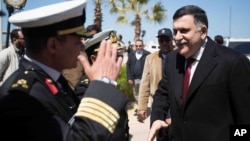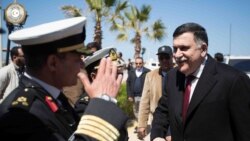Nearly five years ago, a unified Libyan opposition force consisting of various factions and clans worked in unison to rid the country of Muammar Qadhafi’s brutal regime. But groups that had once fought together to defeat a common enemy spent the best part of the next five years embroiled in conflict. And the chaos and security vacuum gave rise to a new, ugly enemy—-violent extremists, particularly Da’esh.
The United States regards Libya as a keystone for access to the Sahel, the Maghreb, the Mediterranean, and Europe. To allow brutal, predatory and destructive terrorists like Da’esh to gain a foothold there would pose a grave danger for the region and beyond.
Last December, Libyans representing a broad geographical and political base signed the Libya Political Agreement to form a Government of National Accord, known as the GNA. But efforts of a minority group of Eastern Hardliners in the House of Representatives have prevented the GNA from finalizing and swearing in a cabinet of ministers.
“The GNA is the only entity that can unify the country and address the economic crisis and humanitarian suffering,” said Secretary of State John Kerry at the Libya Ministerial Meeting in Vienna in mid-May.
“The Libyan people want a government, the government is here, supported by the international community and ready to go to work. It is the only way to generate the unity and the cohesion that is required to defeat Da’esh and other violent extremists who want to pull Libya backward into thuggery and violence,” said Secretary Kerry.
“Libya has an opportunity to be a safe country for its citizens, or it could be a safe haven for terrorists; trapped in division and chaos, and beset by personal, international and tribal rivalries, or,” Mr. Kerry said, “Libya could be a country with a functioning government, with an entrepreneurial economy, and a population that is both diverse and unified at the same time. The choices required to shape Libya’s future are in the hands of its leaders.”
If Libya’s leaders do their part, the international community will support them. “For the sake of Libya’s future,” said Secretary of State Kerry, “we need to seize this moment.”
















